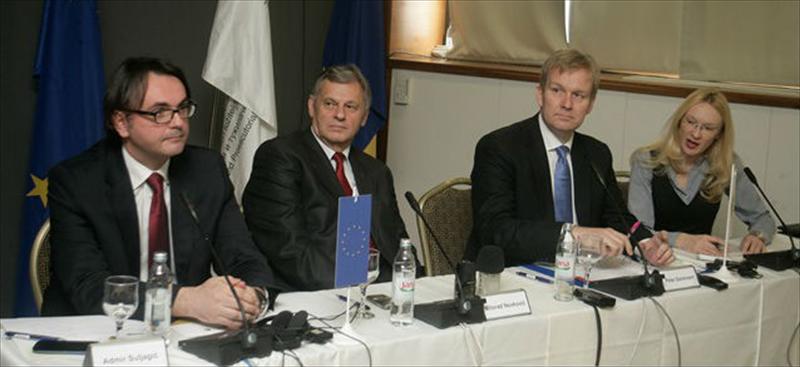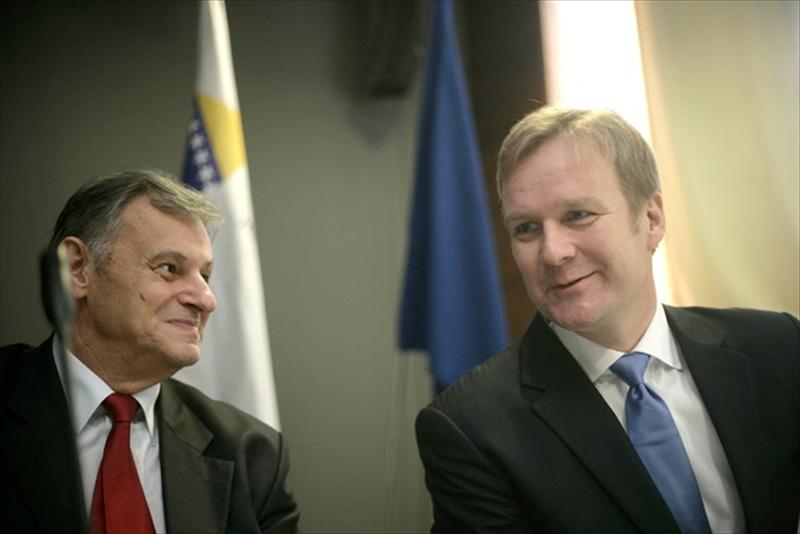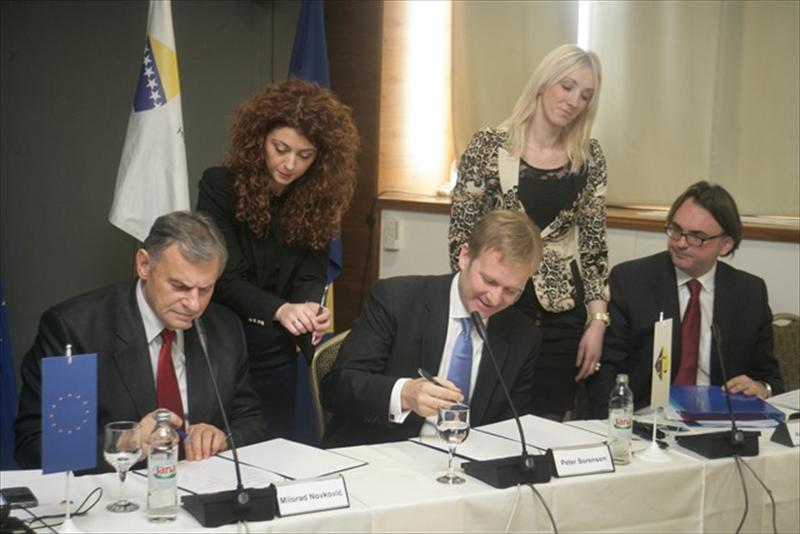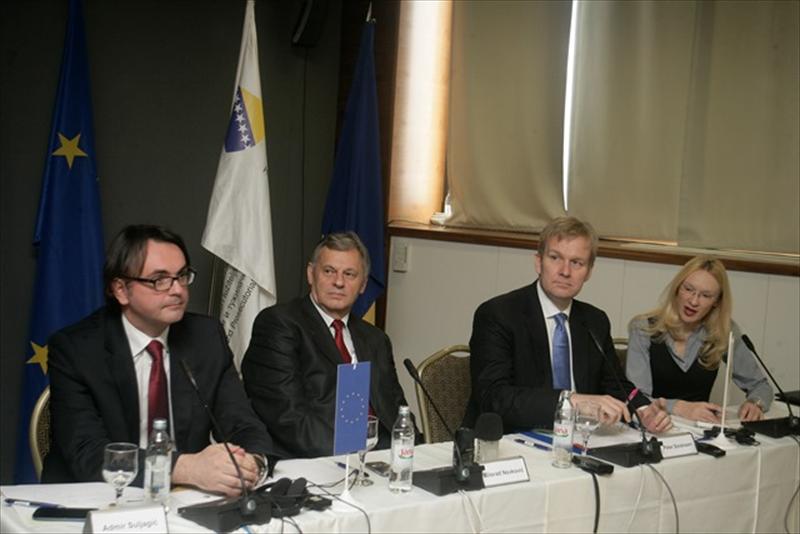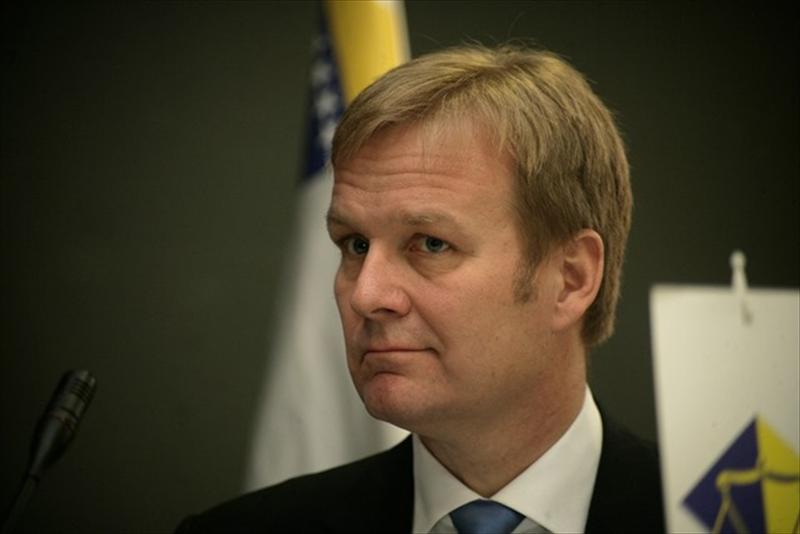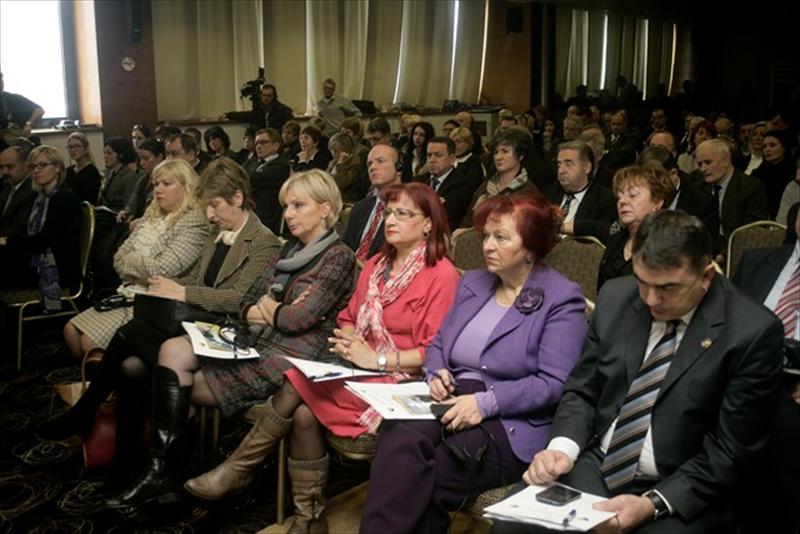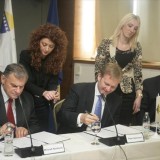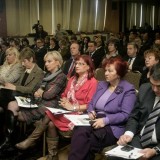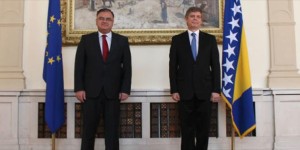Mr. Milorad Novković, President of the High Judicial and Prosecutorial Council of Bosnia and Herzegovina and Ambassador Peter Sorensen, Head of the EU Delegation to BiH and the EU Special Representative, signed today in Sarajevo contract for the implementation of the Project “The Consolidation and Further Development of the Judicial Communication and Information System. This contract will enable the beginning of a new phase in the development of the judicial information system in Bosnia and Herzegovina. The signing ceremony between the HJPC BiH and the EU was organised during the closing conference of the project financed by the European Union through the Instrument for Pre-Accession (IPA 2010) “Strengthening the BiH Judiciary”. Achievements and planned activities focused on support to the judiciary of Bosnia and Herzegovina were presented on this occasion.
Ambassador Peter Sorensen stated: „Today we signed the agreement to provide an additional 1.8 million EUR of EU funding to the BiH High Judicial and Prosecutorial Council. The EU is very happy to support the work of the HJPC and all judicial institutions of the country in order to increase their efficiency. This is part of our overall support to the justice sector in this country and to the rule of law. Citizens want efficient justice, no corruption and an environment that is good for business so strengthening the judiciary will remain one of the top EU priorities into the future.“
In addressing the conference participants, President Novkovic, stated that the completed Project and the new Project for which implementation is about to begin, represent a part of the reform program for the modernization and informatisation of the judiciary that is being carried out by the HJPC BiH. “At a time of continued technological advancement, we often forget the demands of the endeavours for the informatisation of the judiciary in Bosnia and Herzegovina that we initiated 10 years ago.” said President Novković and underlined: “During this time we have come far. Moving on from a traditional, manual method of case processing, we have reached the phase whereby, with the assistance of information technology resources, we are able to measure the performance of judicial institutions and appropriately manage the resources we have at our disposal.”
Speaking on the development of the information system of the judiciary of BiH, Mr. Admir Suljagić, Director of the Secretariat of the HJPC BiH, stressed that the transition to a new phase in the development of the information system has been made possible due to the continues and simultaneous efforts aimed at the implementation of a range of different projects, as well as with the planning and synchronization of development activities throughout an extended period of time. The Director also reflected on the financial aspects of informatisation: “Through the range of projects and investments that were carried out during the past decade for all courts and prosecutors’ offices in Bosnia and Herzegovina, we have succeeded in providing computers, information equipment and software licences valued at over 36 million BAM. Investments that were secured by the HJPC BiH for reconstruction, informatisation and other needs of the judiciary, especially at the entity level, have surpassed 52 million BAM”.
Along with the upgrading of the Judicial Information System, the EU funded Project also provided support for lifelong learning and continuous trainings of judicial/prosecutorial office holders, the modernisation of test procedures for candidates for judicial/prosecutors office, the enhancement of the Case Management System (CMS), new computers for half of the users of the Judicial Information System and the rebuilding of the infrastructure in the data centres thus ensuring greater stability of the system and its daily operation.
The signing of the new contract with the European Union under IPA 2012, amounting to EUR 2,315,000, will see the start of a new project development phase aimed at ensuring the sustainability of the CMS during the upcoming decade. Through the two project phases, lasting for four years in total, a new “preventive” approach to case processing will be introduced linking innovative efficiency-building efforts with the development of a new, second generation CMS that will have the necessary capacity to support the growing needs of the judiciary in the long run.
To read the speech by Ambassador Peter Sorensen in full, click here

